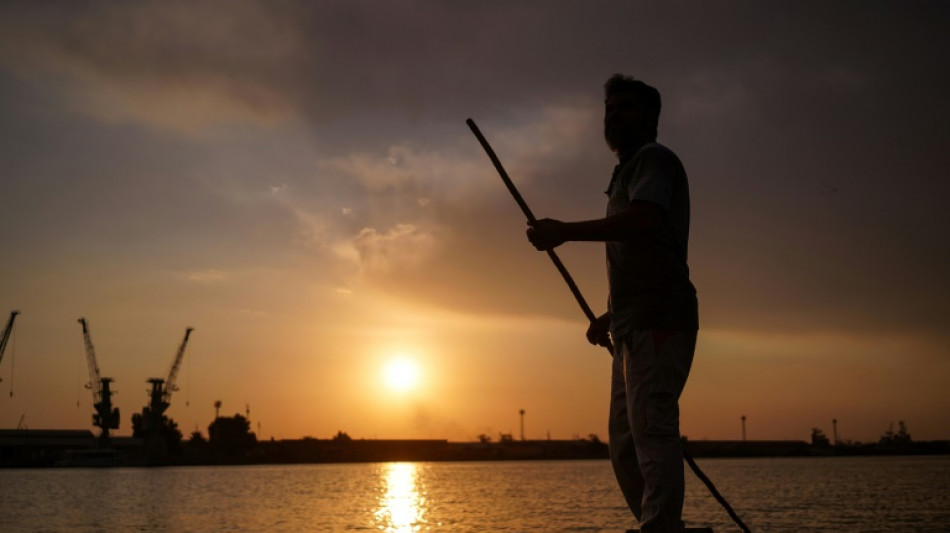
Twilight of the Tigris: Iraq's mighty river drying up

It was the river that is said to have watered the biblical Garden of Eden and helped give birth to civilisation itself.
But today the Tigris is dying.
Human activity and climate change have choked its once mighty flow through Iraq, where -- with its twin river the Euphrates -- it made Mesopotamia a cradle of civilisation thousands of years ago.
Iraq may be oil-rich but the country is plagued by poverty after decades of war and by droughts and desertification.
Battered by one natural disaster after another, it is one of the five countries most exposed to climate change, according to the UN.
From April on, temperatures exceed 35 degrees Celsius (95 degrees Fahrenheit) and intense sandstorms often turn the sky orange, covering the country in a film of dust.
Hellish summers see the mercury top a blistering 50 degrees Celsius -- near the limit of human endurance -- with frequent power cuts shutting down air-conditioning for millions.
The Tigris, the lifeline connecting the storied cities of Mosul, Baghdad and Basra, has been choked by dams, most of them upstream in Turkey, and falling rainfall.
An AFP video journalist travelled along the river's 1,500-kilometre (900-mile) course through Iraq, from the rugged Kurdish north to the Gulf in the south, to document the ecological disaster that is forcing people to change their ancient way of life.
Y. Rousseau--BTZ

 London
London

 Manchester
Manchester
 Glasgow
Glasgow
 Dublin
Dublin
 Belfast
Belfast
 Washington
Washington
 Denver
Denver
 Atlanta
Atlanta
 Dallas
Dallas
 Houston Texas
Houston Texas
 New Orleans
New Orleans
 El Paso
El Paso
 Phoenix
Phoenix
 Los Angeles
Los Angeles



